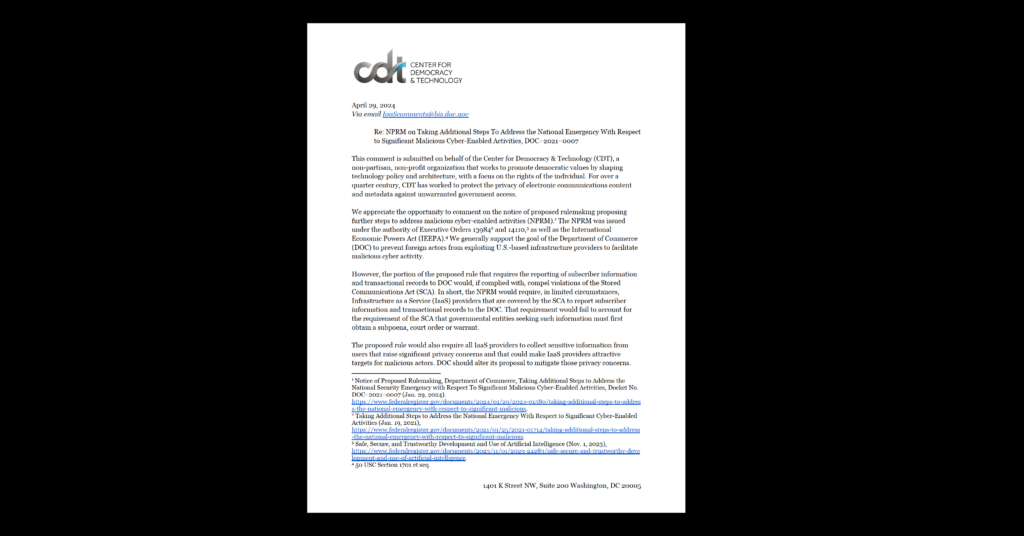ECTR Amendment Could Give DOJ Broad Power to Spy on the Press
The FBI wants to expand its secret authority to access journalists’ records in leak investigations. The proposed change would compromise journalists’ ability to report on government abuses and corruption involving national security matters, which are already shrouded in secrecy.
According to documents leaked in June, the FBI can already use national security letters (NSLs) to collect journalists’ phone records in intelligence investigations without notice or court approval. In the Stored Communications Act, Congress limited NSLs to a narrow class of telephone records, including “the name, address, length of service, and local and long distance toll billing records of a person or entity.” Now, the Justice Department is pushing for an expansion of NSL authority, dubbed the “ECTR fix,” that would allow it to collect a broad array of electronic records, including email logs and browsing history.
This kind of warrantless access to sensitive information critical to the journalistic function can make a reporter’s sources dry up and prevent the discovery of stories.
When these records are collected from news outlets, they can reveal the sources reporters are speaking to, the websites they’re visiting to gather information, and the types of files they receive. This kind of warrantless access to sensitive information critical to the journalistic function can make a reporter’s sources dry up and prevent the discovery of stories like Watergate, the Pentagon Papers, and the CIA’s torture program.
The Justice Department already has a troubling record of spying on the press. The DOJ came under scrutiny in 2013 when it subpoenaed two months’ worth of telephone records from 20 Associated Press reporters and, in a separate matter, labeled Fox News reporter James Rosen a “criminal co-conspirator” in an investigation of one of his sources and obtained his phone records and emails. In response, the DOJ revised its guidelines for subpoenaing the press, but those revised guidelines left open a loophole.
The DOJ’s guidelines on the criminal side require subpoenas, court orders, and warrants seeking newsgathering information to be authorized by the attorney general. The government must notify the media outlet in advance of the demand unless doing so would pose a “clear and substantial threat to the integrity of the investigation,” a “grave” threat to national security, or “an imminent risk of death or serious bodily harm.”
But these heightened requirements for law enforcement demands on the news media do not apply to NSLs, which are issued in foreign intelligence and counterterrorism investigations. According to the recently leaked classified annex to the FBI’s Domestic Investigations and Operations Guidelines (DIOG), NSLs can be issued without the checks that apply in the criminal context. In fact, in cases where the FBI is expressly seeking to identify a reporter’s confidential source, the FBI may issue an NSL with only the approval of lower level officials at the FBI and DOJ. A reporter working on a story about government waste or wrongdoing needs more protection than this.
Unchecked surveillance of the press offends longstanding notions of journalistic independence and free speech.
Further, NSLs are even more invasive than a criminal subpoena. The FBI can issue NSLs at its sole discretion, without going through a court first, to collect records from telecommunications providers. The FBI need only certify that the records are “relevant” to a terrorism or espionage investigation—a relatively low bar. NSLs also come with a gag order preventing the recipient telecommunications company from notifying the subject of the letter.
Unchecked surveillance of the press offends longstanding notions of journalistic independence and free speech. We rely on the press to be a watchdog, reporting on the government’s activities and informing the public about abuses of power. The proposed NSL expansion would hamstring reporters’ ability to perform this watchdog function by exposing them to the constant threat of far-reaching, secret surveillance. The DOJ should reconsider its position on expanding the scope of NSLs.


